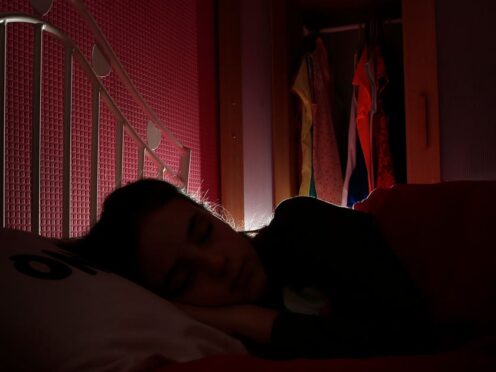
People who sleep less than six hours every night may have a 16% higher risk of developing type 2 diabetes – even when they eat healthily, research suggests.
An analysis of data from nearly 250,000 UK adults suggests people sleeping between three and four hours a night may have a 41% higher risk of developing the condition, compared with those who get more than seven hours, while five hours or so of sleep was associated with a 16% higher risk.
The researchers said further studies are needed to validate the findings, but added that their work suggests healthy eating alone cannot compensate for chronic sleep deprivation.
Christian Benedict, associate professor and sleep researcher at Uppsala University in Sweden, said the findings “should not cause concern, but instead be seen as a reminder that sleep plays an important role in health”.
He said: “I generally recommend prioritising sleep, although I understand it’s not always possible, especially as a parent of four teenagers.”
It is estimated that more than 4.4 million people in the UK are living with type 2 diabetes and some 13.6 million are at increased risk of developing the condition.
Type 2 diabetes affects the body’s ability to process sugar, hindering insulin absorption and resulting in high blood sugar levels.
Over time, it can cause serious damage, particularly to nerves and blood vessels.
For the study, published in the journal Jama Network Open, the researchers looked at health data of 247,867 adults in the UK Biobank – a database containing medical and lifestyle records of more than half a million people.
Their aim was to understand whether people who sleep too little can reduce their risk of developing type 2 diabetes by eating healthily.
The criteria for healthy eating included having less than two servings of unprocessed red meat products per week, or fewer than two weekly servings of processed meat products, four or more tablespoons of vegetables per day, two or more pieces of fruit per day, and two or more servings of fish products per week.
The researchers said they adjusted for factors such as ethnicity, smoking status, antidepressant use, body mass index, blood pressure, education, social and economic status, and physical activity.
Over the course of 12 years, 7,905 people were diagnosed with type 2 diabetes.
The team found that, overall, people with the healthiest diets were found to have a 25% lower risk of developing type 2 diabetes.
But those who slept less than six hours a day were still at increased risk.
Prof Benedict said there may be several factors at play that raise the risk of type 2 diabetes among poor sleepers, such as “leading a sedentary lifestyle, diminished skeletal muscle function in regulating blood sugar levels, and unfavourable changes in gut microbiota (bacteria)”.
He added: “Studies on sleep extension have demonstrated that individuals tend to consume less sugar and fewer calories, which likely contributes to better long-term metabolic health.”
Commenting on the study, Dr Lucy Chambers, head of research communications at Diabetes UK, said: “No one thing causes type 2 diabetes.
“Genetics, age, and body weight are well-known contributors, but inadequate sleep is often an under-recognised factor.
“This research suggests that a healthy diet alone won’t counteract the heightened risk of type 2 diabetes from too little sleep, and is a reminder that nutrition, exercise and sleep are all essential components of good health.”

Enjoy the convenience of having The Sunday Post delivered as a digital ePaper straight to your smartphone, tablet or computer.
Subscribe for only £5.49 a month and enjoy all the benefits of the printed paper as a digital replica.
Subscribe